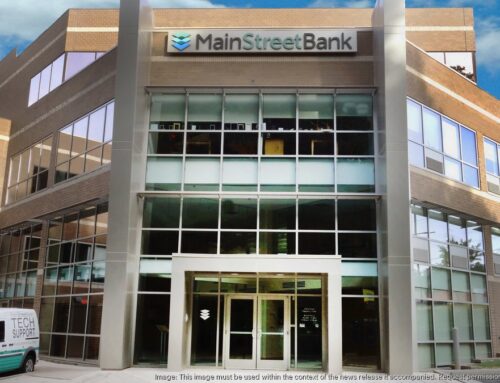Coinbase Disrupts Bitcoin Backed Lending With Low Bar for Servicing Americans
October 28, 2025
In brief
- Coinbase offers Bitcoin-backed loans as a technology provider.
- The exchange’s competitors have state-by-state licenses.
- Coinbase applied for a national trust charter this month.
As Coinbase leans into its Bitcoin-backed lending product, the exchange is offering customers competitive rates by connecting them with lightly vetted pools of capital, which don’t require people to provide personal information before funds are disbursed to Americans.
Although the exchange’s competitors have attained state-by-state licenses to provide similar services, Coinbase’s product isn’t subject to the same potential barriers because the company is acting as a technology provider—and not lending customers’ assets itself.
Instead of doing business with Coinbase, the exchange’s customers, through Coinbase’s mobile app, are depositing funds into decentralized finance protocol Morpho. On Morpho’s platform, they can post Bitcoin as collateral for loans in Circle’s USDC. Alternatively, Coinbase’s customers can deposit USDC into Morpho to earn yield.
In the U.S., lenders are required to abide by KYC (know your customer) and AML (anti-money laundering) regulations to ward off financial crimes. These requirements include obtaining personally identifiable information from their users, such as their names, physical addresses, and even social security numbers. But as a permissionless protocol, Morpho wasn’t designed to oversee transactions like most financial institutions do.
In DeFi, infrastructure is designed to let capital flow freely between individuals, no matter who they are. Multiple industry observers told Decrypt that dynamic likely makes Coinbase’s product more lucrative, but it also raises compliance concerns.
That is, Coinbase’s customers are subject to a primary defense against money laundering and terrorist financing, while their lenders face a lower bar. That includes entities depositing USDC into “vaults” on Morpho, which are managed by a firm called Steakhouse. (Coinbase recently told Decrypt that Steakhouse shares performance fees with the exchange.)
Those depositing USDC into Steakhouse’s vaults on Morpho, for example, “represent and warrant” that they are at least 18 years old, just by using the company’s services, according to Steakhouse documentation. Those users also indicate that they aren’t on “any sanctions or restricted persons lists,” covering countries like Iran, North Korea, and Russia.
Steakhouse says users “must” not use their vaults if they do not meet those requirements, but it doesn’t appear to have a standard verification process in place. Still, Steakhouse says it can suspend access “through third-party platforms or interfaces.”
“Any Coinbase user who deposits their USDC in a Morpho vault is fully KYC’ed, in addition to Morpho’s own geographic and sanctions screening,” a Coinbase spokesperson told Decrypt. “Pair that with Circle’s ability to blacklist any address deemed illicit, and there are several factors at play to make this architecture unsuitable for bad actors.”
Morpho Association, a French nonprofit entity, can restrict access to “some components” of the protocol at their discretion, according to Morpho documentation. Among several reasons, that includes “legal and regulatory requirements,” the documentation states.
The New York Department of Financial Services approved a limited implementation of Coinbase’s Bitcoin-backed lending product, a person familiar with the matter told Decrypt.
Coinbase’s Bitcoin-backed lending product surpassed $1 billion in originations this month. And as its customers make down payments on homes or purchase big-ticket items like cars, the exchange plans on raising loan limits to $5 million from $1 million soon.
A few weeks ago, Coinbase became the latest company in the cryptosphere to apply to the Office of the Comptroller of the Currency (OCC) for a national trust charter. Unlike a traditional banking charter, a national trust charter does not allow institutions to make loans.
Coinbase once offered Bitcoin-backed loans directly to customers, but the service was discontinued amid industry-wide scrutiny in 2023. At the time, Coinbase charged an annual percentage rate of 8.7% on Bitcoin-backed loans.
In 2024, Coinbase Ventures participated in a $50 million strategic funding round for Morpho, not long after the protocol expanded to Coinbase’s Ethereum layer-2 scaling network Base. Previously, Morpho’s services were only available on Ethereum’s mainnet.
On Morpho, Coinbase users can “enjoy rates as low as 5%,” according to the exchange’s website, which describes the rate as “2x lower than other crypto-backed loan options.”
“The competitive interest rates our users can access are determined by the Morpho protocol (and can vary), which are the result of the supply of and demand for USDC in the relevant Morpho lending pools,” the Coinbase spokesperson said.
In the U.S., the lender Ledn requires customers to pay an annual percentage rate of 10.4% on its standard Bitcoin-backed loan. Figure Technologies, which debuted on the Nasdaq last month, meanwhile charges 9.9% APR on its standard crypto-backed loan.
These companies operate under a patchwork of lending licenses in the U.S., so their services aren’t available in a handful of states, despite the availability of Coinbase’s product.
“Coinbase users that borrow and lend via Morpho are able to leverage the benefits of DeFi, where transparent rules of transaction and settlement can provide better products at lower costs over time,” a Steakhouse spokesperson told Decrypt.
Some firms have tried to balance the permissionless nature of DeFi with Wall Street’s needs. In 2022, for example, crypto custody firm Fireblocks supported a version of lending protocol Aave that required participating institutions to undergo KYC verification.
At the time, Fireblocks acknowledged that DeFi “has largely remained untapped by institutions due to focus on risk management and KYC/AML requirements.”
The product’s adoption was lackluster, with some onlookers describing the virtually empty protocol as a “bearish sign for KYC-Fi” within Aave’s governance forums a year and a half later.
Daily Debrief Newsletter
Start every day with the top news stories right now, plus original features, a podcast, videos and more.
Search
RECENT PRESS RELEASES
Bitcoin (BTC) Price Prediction: Bitcoin Flips Multi-Year Resistance Into Support, Eyes Exp
SWI Editorial Staff2025-10-28T13:44:21-07:00October 28, 2025|
Bitcoin Price Crashes To $112,000 Ahead Of Fed Decision
SWI Editorial Staff2025-10-28T13:43:49-07:00October 28, 2025|
MainStreet Bank abandons cannabis banking initiative to attract potential buyers, CEO says
SWI Editorial Staff2025-10-28T13:43:12-07:00October 28, 2025|
Virginia’s new medical cannabis tracking system finds a multi-million dollar industry in H
SWI Editorial Staff2025-10-28T13:42:37-07:00October 28, 2025|
Watt fires warning shot at Ley on environment laws
SWI Editorial Staff2025-10-28T13:41:48-07:00October 28, 2025|
Why billions of gallons of raw sewage keep ending up in Philadelphia waterways
SWI Editorial Staff2025-10-28T13:41:14-07:00October 28, 2025|
Related Post




